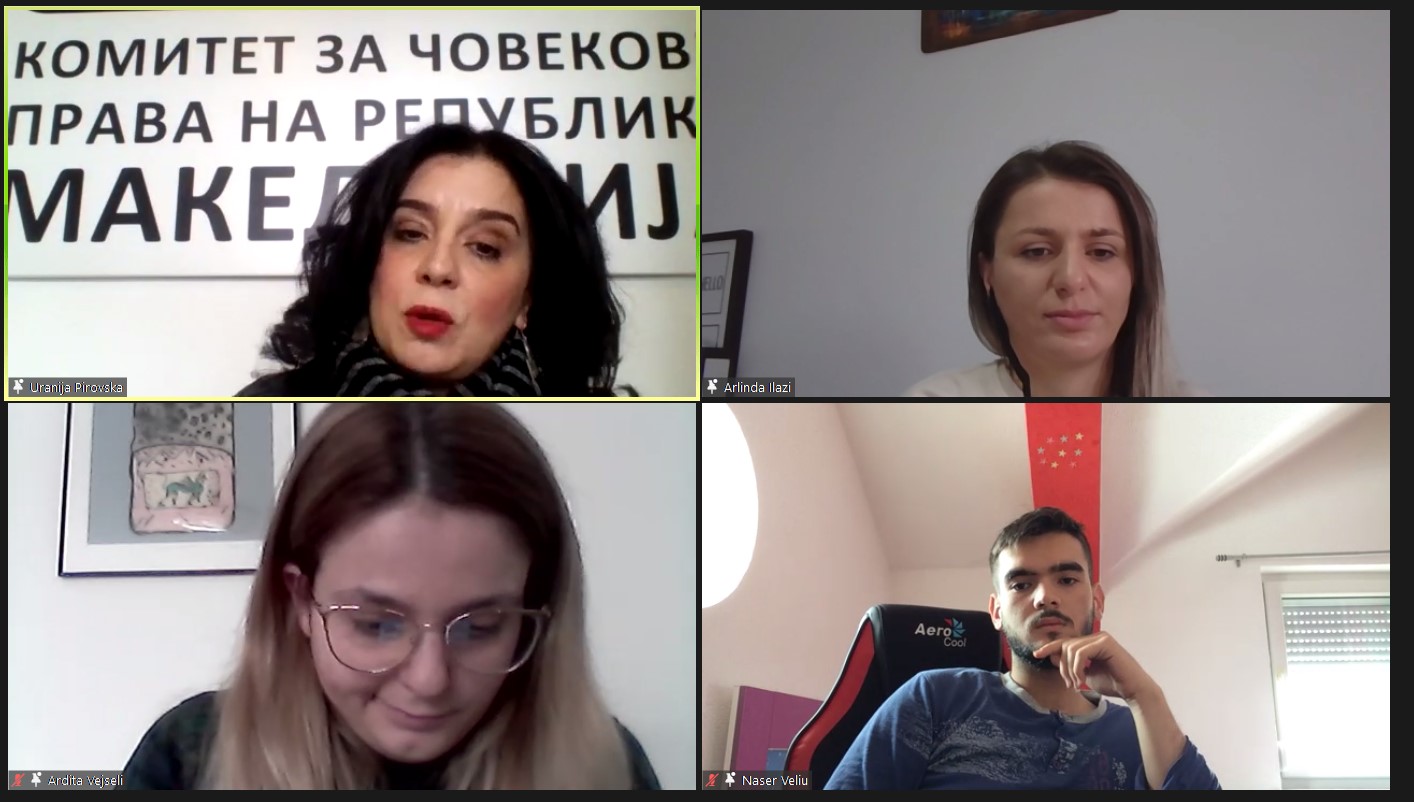Each state is based on its state institutions and their proper functioning. Public policies play a fundamental role in all areas of its development. The citizens reckon that the public authorities in the Republic of North Macedonia are delivering disappointing results, and their level of trust in them is generally low. Informing the citizens about the functioning of the institutions is of key importance for a democratic society.
The discussion “Institutions in North Macedonia: Key Challenges of the Branches of Government”, which took place on March 22, aimed to involve the citizens in a debate discussion on getting acquainted with the branches of government; the work and function of the main institutions in the country. The discussion was organized in a format, in which the first part of the discussion was constituted of the citizens who discussed their views and opinions. In addition to the proposed solutions and recommendations, they also formed questions pertaining to the second part of the discussion, in which they had the opportunity to propose them to the expert in the field.
When it comes to trust in institutions, it is at a somewhat inadequate level in the opinion of citizens. The assessment of the work of the three authorities (legislative, executive and judicial) is generally low. Nowadays, the institutions are not characterized by mutual communication and cooperation, but by coercion and negative influences encouraged by party affiliations. Parliament should be the one that controls the government, but in reality, it is the opposite. The government is the one that drafts all the laws, without the previous proper analysis, and the parliament only follows its steps and accepts its activities. In addition to parliament, the court is under the auspices of the government. What is pointed out as relevant is that the employees in the institutions can not share the priorities, i.e. put their needs before the needs of the general public.
The services of the institutions are rarely received and in an inappropriate way. As a problem highlighted in the discussion, the services provided by the institutions are not adequate and proportionate to what citizens expect to be fulfilled. It was also emphasized that within the public administration, there is an overcrowding of employees who receive salaries without performing the work for which they are assigned.
It was also discussed that the courts have an insufficient number of Certified Court Reporters and minutes from the trials. In addition, judges are another problem in the courts, lacking seriousness based on the approach to the case itself. The guilt is constantly transferred from one to another, without taking proper responsibility. These shortcomings in the functioning were also pointed out as reasons why the citizens do not trust the authorities.
The discussion highlighted the challenges faced by the institutions, the lack of capacity, the large presence of unskilled employees, selfishness based on decision-making and their inability to fulfil promises. Citizens, especially young people, feel that they are not sufficiently familiar with the opportunities through which they can participate or report dissatisfaction with the functioning of institutions. In addition, they believe that citizens are generally insufficiently aware of their guaranteed rights, as well as how they can react if they find that their rights have not been met. In the modern world, all data and information can be found on websites, but the website of the municipality itself, in this case, the municipality of Tetovo, is not functional. The dysfunction of modern ways of informing also indicates the unpreparedness of the institutions in the modern era.
To overcome the discussed challenges, certain recommendations were given. The education of the young generations is of key importance, and the introduction of reforms in the education system is considered as a basis for further solid functioning and organization of the supreme authorities. In addition, it is necessary to reform the democratic system, with greater participation of citizens in the reform processes. Greater transparency is also needed concerning the work of the institutions and an increased degree of monitoring in the same area to avoid additional complications. In conclusion, young people need to fight for reforms in the system of government and greater respect for their fundamental rights, such as their participation in decision-making processes.
As part of the discussion, together with the 15 participants of different ages from the Tetovo region, the Executive Director of the Helsinki Committee for Humanity of the Republic of Macedonia, Uranija Pirovska, was invited to answer the questions of the citizens directly in the questions and answers session. The discussion was moderated by Arlinda Iljazi from the organization Multikultura from Tetovo.
The event was organized as part of the project “ACT – Active Civic Action 2.0”, implemented by the European Policy Institute – Skopje with the support of the Center for Deliberative Democracy at Stanford University in the United States. The project is funded by the National Endowment for Democracy from the United States. This discussion, together with 4 other debate discussions with citizens on various topics across the country, will contribute to the development of the National Debate Survey that is planned in 2022.






